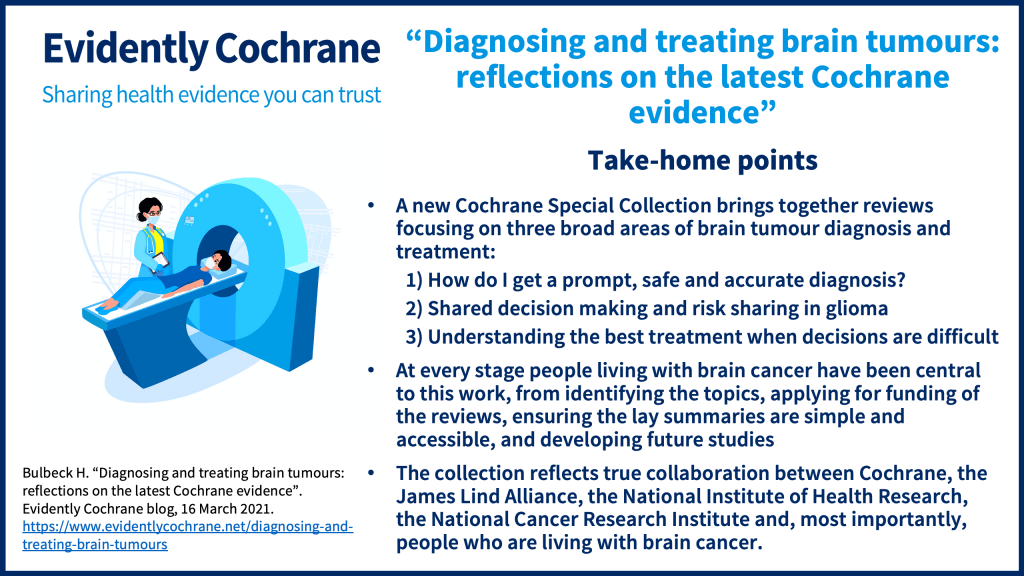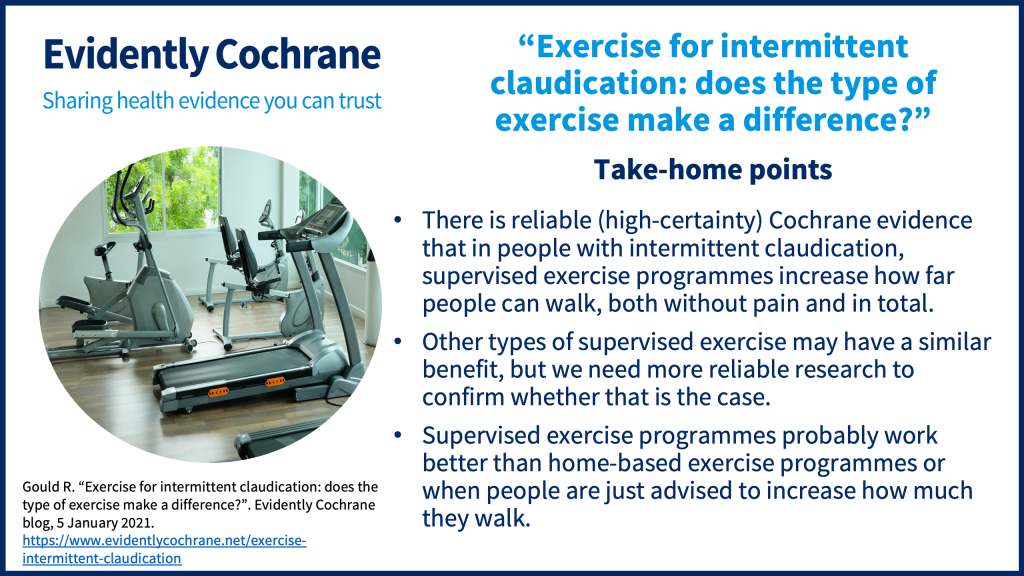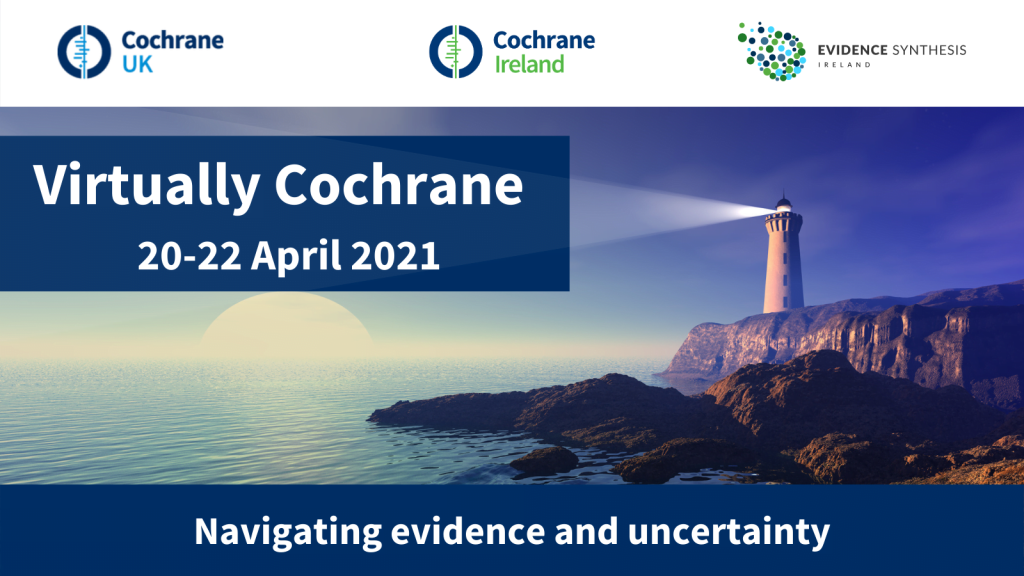The latest evidence and resources for allied health professionals and clinical support staff. You can either scroll through this page or click on any of the links below to jump to the relevant section.
Please note, unlike the rest of our blogs, our ‘Evidence for Allied Health: new evidence and resources’ blogs will not be updated.
- COVID-19
- Cancer
- Children – virtual reality to distract from pain in healthcare settings
- Chronic Kidney Disease
- Critical and emergency care
- Cystic Fibrosis
- Dietary salt
- Diet – preterm infants
- Flexor tendon injuries of the hand
- Intermittent claudication
- Older people with visual impairment: interventions vs visits
- Organization of care
- Perioperative care
- Respiratory disease
- Rotator cuff disease
- Smoking cessation
- Stroke rehabilitation
- Coming up
COVID-19
.
COVID-19
Cochrane is producing reviews and resources for the COVID-19 pandemic. We have blogged about many of them and this blog COVID-19 evidence: a Cochrane round-up brings together a large collection of evidence and resources, starting from when this evidence was first being produced in spring 2020. Like the reviews themselves, all our blogs are updated to reflect new evidence.
Cochrane’s response to the pandemic had to meet the needs of evidence users and decision‐makers as it developed and how this is being done is discussed in an Editorial COVID-19: working together and making a difference for decision-makers. Cochrane has also signed on to the World Health Organization’s call for action about managing infodemics and WHO’s Vaccine Equity Declaration. You can read about Cochrane Rehabilitation’s work with the WHO in Cochrane Rehabilitation vs COVID-19: Compiling the best available evidence rapidly.
You may also be interested to know about iHealthFacts, an online resource where anyone can ask for the evidence behind health claims. Read more in Cochrane Ireland vs COVID-19: iHealthFacts.ie ‘fact checking’ claims in a pandemic.
Cochrane Special Collections
Cochrane Special Collections assemble Cochrane Reviews on important topics for the prevention and treatment of COVID-19. They are developed with experts from our global Cochrane network. They are based on World Health Organization interim guidance, and continuously updated. You can find Coronavirus (COVID-19) Special Collections here. Among them is Coronavirus (COVID-19): evidence relevant to critical care, most recently updated in March 2021.
Cochrane Podcasts
Cochrane COVID-19 Podcasts offer short summaries of Cochrane COVID-19 reviews from the authors themselves. A good way to hear the latest Cochrane evidence in under 5 minutes each.
Cochrane Clinical Answers
Cochrane Clinical Answers (CCAs) provide a readable, digestible, clinically-focused entry point to rigorous research from Cochrane Reviews. They are designed to be actionable and to inform point-of-care decision-making.
Each CCA contains a clinical question, a short answer, and data for the outcomes from the Cochrane Review deemed most relevant to practising healthcare professionals. The evidence is displayed in a user-friendly tabulated format that includes narratives, data, and links to graphics.
You can find Cochrane Clinical Answers related to COVID-19 here.
Best of the Cochrane Library
Best of the Cochrane Library: 2020 in review
Cancer
Brain tumour diagnosis and management
Special Collection: Brain tumour diagnosis and management
The Evidently Cochrane blog Diagnosing and treating brain tumours: reflections on the latest Cochrane evidence has been written for people living with a brain tumour, healthcare practitioners and anyone with an interest in brain tumours. In it, Helen Bulbeck, Cochrane consumer representative and director of policy and services for brainstrust, looks at the latest Cochrane evidence on brain tumours and reflects on what this special collection means for the brain tumour community and why collaboration has been key to the success of this work.

Exercise for cachexia
Cochrane Review: Exercise for cancer cachexia in adults (March 2021)
Children – virtual reality to distract from pain in healthcare settings
Cochrane Podcast: What are the benefits and risks of using virtual reality in a healthcare setting to distract children from pain?
Chronic kidney disease
Low protein diet for adults with chronic kidney disease
Cochrane Clinical Answer: What are the effects of a low‐protein diet for non‐diabetic adults with chronic kidney disease?
Critical and emergency care
Community first responders and out-of-hospital cardiac arrest
Cochrane Clinical Answer: What is the RCT evidence for community first responders attending people who have had an out‐of‐hospital cardiac arrest?
High-flow nasal cannulae
Cochrane Review: High‐flow nasal cannulae for respiratory support in adult intensive care patients (March 2021)
Oral care for mechanically ventilated patients
Cochrane Clinical Answer: What are the effects of chlorhexidine rinses and toothbrushing for critically ill people who are mechanically ventilated?
Telemedicine
Featured Review: What are healthcare stakeholders’ perceptions and experiences of factors affecting the implementation of critical care telemedicine? (February 2021)
Cystic fibrosis
Cochrane Clinical Answer: For people with cystic fibrosis, what are the effects of treatment with lumacaftor plus ivacaftor?
Cochrane Clinical Answer: For people with cystic fibrosis, what are the effects of treatment with tezacaftor plus ivacaftor (with or without VX-659 or elexacaftor)?
Dietary salt
Salt reduction
Cochrane Clinical Answer: How does dietary salt reduction affect cardiovascular biomarkers and hormone levels in healthy normotensive and hypertensive adolescents and adults?
Diet – preterm infants
Cochrane Reviews:
Enteral zinc supplementation for prevention of morbidity and mortality in preterm neonates (March 2021)
High versus low medium chain triglyceride content of formula for promoting short‐term growth of preterm infants (February 2021)
High versus standard volume enteral feeds to promote growth in preterm or low birth weight infants (March 2021)
Individualized versus standard diet fortification for growth and development in preterm infants receiving human milk (November 2020)
Cochrane Clinical Answers:
Flexor tendon injuries of the hand
Cochrane Review: Rehabilitation following surgery for flexor tendon injuries of the hand (January 2021)
Intermittent claudication
In the blog Exercise for intermittent claudication: does the type of exercise make a difference? Dr Rebecca Gould, Sport and Exercise Medicine Registrar and Cochrane UK Fellow, looks at the latest Cochrane evidence on exercise for intermittent claudication (lower leg pain that comes on during exercise) and explores if the type of exercise undertaken makes a difference.

There is also a Cochrane Clinical Answer: How do alternative modes of exercise training compare with supervised walking for people with intermittent claudication?
.
Older people with visual impairment: interventions vs visits
Cochrane Clinical Answer: For older people with visual impairment, how do environmental and behavioral interventions compare with social/home visits?
Cochrane Clinical Answer: For older adults with visual impairment, how do environmental and/or behavioural interventions compare?
Organization of care
Patient access to electronic health records
Featured Review: Do patients manage their health care better if they can access their electronic health records?
Multimorbidity – organizational interventions
Cochrane Clinical Answer: What are the effects of organizational interventions directed toward people with multimorbidity?
Perioperative care
Melatonin for anxiety
Cochrane Clinical Answer: For adults with preoperative and postoperative anxiety, what are the effects of melatonin?
Respiratory disease
Anti-IL5 therapies for COPD
Featured review: Anti-IL5 therapies for chronic obstructive pulmonary disease
Chronic respiratory disease and telemedicine
Cochrane Review: Telerehabilitation for chronic respiratory disease (January 2021)
Exercise training for bronchiectasis
Cochrane Review: Exercise training for bronchiectasis (April 2021)
Pulmonary rehabilitation for interstitial lung disease
Cochrane Review: Pulmonary rehabilitation for interstitial lung disease (February 2021)
Rotator cuff disease
Shockwave therapy
Cochrane Clinical Answers:
How does shockwave therapy compare with placebo for people with rotator cuff disease?
Smoking cessation
Behavioural support
Featured Review: Does behavioural support help people to stop smoking?
Cochrane Clinical Answer: How do motivational and behavioral interventions compare with no intervention for smoking cessation?
Cochrane Clinical Answer: How does mode of delivery impact effectiveness of motivational and behavioural smoking cessation interventions?
Cochrane Clinical Answer: How does type of provider impact effectiveness of motivational and behavioural smoking cessation interventions?
E-cigarettes
Cochrane Podcast: Let’s talk e-cigarettes
Eight ways to quit
Eight ways to quit smoking in 2021: video talks through the Cochrane evidence.
Smoking cessation and mental health
Cochrane Review: Smoking cessation for improving mental health (March 2021)
Cochrane Podcast: Smoking cessation for improving mental health
Cochrane Clinical Answer: What are the effects of smoking cessation on anxiety and depression?
Stroke rehabilitation
Cochrane Clinical Answers:
How does motor imagery compare with other therapies for gait rehabilitation in adults after stroke?
What are the effects of transcranial direct current stimulation (tDCS) after stroke?
Coming up
Virtually Cochrane: an online event
Registration is now open for ‘Virtually Cochrane’, an online event for all those involved with, or interested in, planning, doing, sharing and using health and healthcare evidence. It will take place on 20 – 22 April 2021. You can read all about it, and register, here.

The next collection of evidence will be published here in July 2021. We may have new blogs and blogshots on individual reviews meanwhile. You can find all our blogs relevant to allied health here and blogshots here.
Join in the conversation on Twitter with @CochraneUK or leave a comment on the blog.
Please note, we cannot give specific medical advice and do not publish comments that link to individual pages requesting donations or to commercial sites, or appear to endorse commercial products. We welcome diverse views and encourage discussion but we ask that comments are respectful and reserve the right to not publish any we consider offensive. Cochrane UK does not fact check – or endorse – readers’ comments, including any treatments mentioned.
Sarah Chapman and Selena Ryan-Vig have nothing to disclose.


